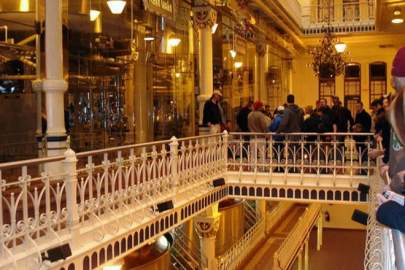Welcome to our Blog
St. Louis’ Brewing History
Share this page: Facebook LinkedIn Pinterest Twitter
St. Louis, Missouri, holds a rich brewing history that dates back to the early 19th century. The city has long been associated with the production of beer, with its breweries playing a crucial role in shaping the local identity and economy.
German immigrants played a significant part in establishing the brewing industry in St. Louis. In the mid-1800s, many skilled German brewers settled in the city, bringing their expertise and traditional brewing techniques with them. These immigrants were attracted to St. Louis due to its abundant natural resources such as limestone caves, pure water sources, and vast grain fields, making it an ideal location for brewing.

One of the most influential figures in St. Louis' brewing history was Adolphus Busch, a German immigrant who co-founded Anheuser-Busch with his father-in-law Eberhard Anheuser. Adolphus Busch recognized the potential for growth and expansion in the brewing industry, and he modernized the brewing process by introducing pasteurization techniques and innovative marketing strategies.
Anheuser-Busch, founded in 1852, became the dominant brewery in St. Louis and paved the way for the city's economic development. It gained national recognition with its flagship beer, Budweiser, becoming one of the most prestigious and successful brands in the United States. Anheuser-Busch's success further solidified St. Louis' reputation as a brewing powerhouse.
St. Louis was also home to several other notable breweries throughout its history, such as the Falstaff Brewing Corporation, Griesedieck Brothers Brewery, and Lemp Brewery. These breweries, along with Anheuser-Busch, contributed to St. Louis' reputation as the "Beer Capital of the World" during the 19th and early 20th centuries.
Unfortunately, the Prohibition era in the United States dealt a severe blow to the brewing industry in St. Louis and across the country. In 1920, the 18th Amendment prohibited the production, sale, and distribution of alcoholic beverages, leading to the closure of many breweries. Anheuser-Busch managed to survive by diversifying its products, producing non-alcoholic beverages and other consumer goods during this period.
After the repeal of Prohibition in 1933, the brewing industry slowly regained its strength in St. Louis. Anheuser-Busch resumed its beer production and continued to dominate the market. However, the landscape of the brewing industry has changed over the years, with the rise of craft breweries and the acquisition of Anheuser-Busch by InBev in 2008.
Today, St. Louis still celebrates its brewing heritage with a thriving craft beer scene. Many microbreweries and brewpubs have emerged, producing a diverse range of beers that cater to different tastes and preferences. These establishments offer visitors and locals a chance to experience St. Louis' brewing history firsthand and sample unique and innovative brews.
St. Louis' brewing history remains an integral part of its cultural landscape. The legacy of German immigrants, spearheaded by Adolphus Busch's vision and innovation, has left an indelible mark on the city's identity. Whether enjoying a draught at a local craft brewery or visiting the historic Anheuser-Busch brewery, one can appreciate the significant contributions of St. Louis to America's beer industry.
Ask us when you arrive at Lehmann House and we will tell you all about the Brewery Tours in St. Louis.